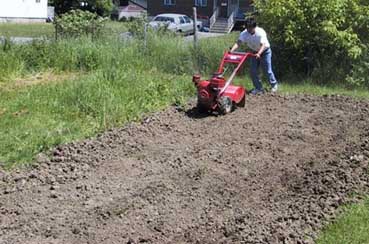Planting a garden does not start with the physical act of sowing seeds into the ground in the springtime. Work actually begins in the Fall, a time when the soil is fertilized. The word 'fertile' means productive; rich in natural resources. In other words, the soil is prepared to become productive and rich with the right balance of nutrients to help the plants grow.

A natural way of fertilizing soil is to use compost. Compost is formed through the natural decay of organic materials. People these days often have compost heaps their gardens, where they toss left over food, grass cuttings etc. As the materials mix and decay, they can be spread over soil to replace the nutrients it has lost. Composting - the recycling of organic materials - occurs naturally all the time in forests and fields which are not harvested. When our ancestors raised corn, the corn stalks they left in the fields after the harvest became the fertilizing compost for the next year's crop.
Sometimes an area of soil has been so used that it needs time to recover. A long time ago, Native farmers watched to see if new plant life grew from the garden in the Spring. If it did not, the soil was not healthy enough to support crops; it needed time to rest and renew itself. When this happened the farmer would find a new location for planting, letting the old spot remain fallow for one or more seasons. Farmer's today also let fields lie fallow in order to allow for the natural return of soil nutrients.